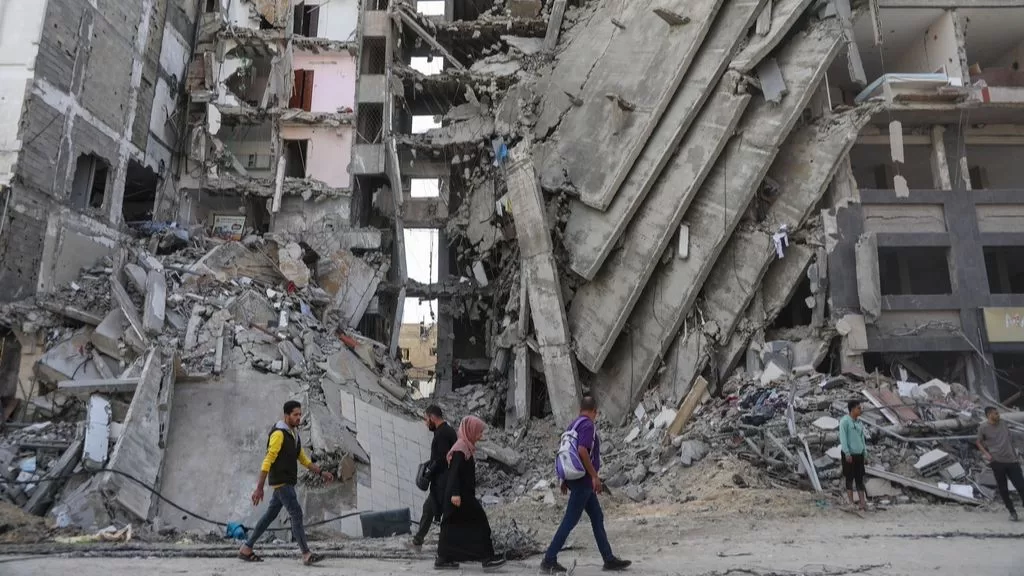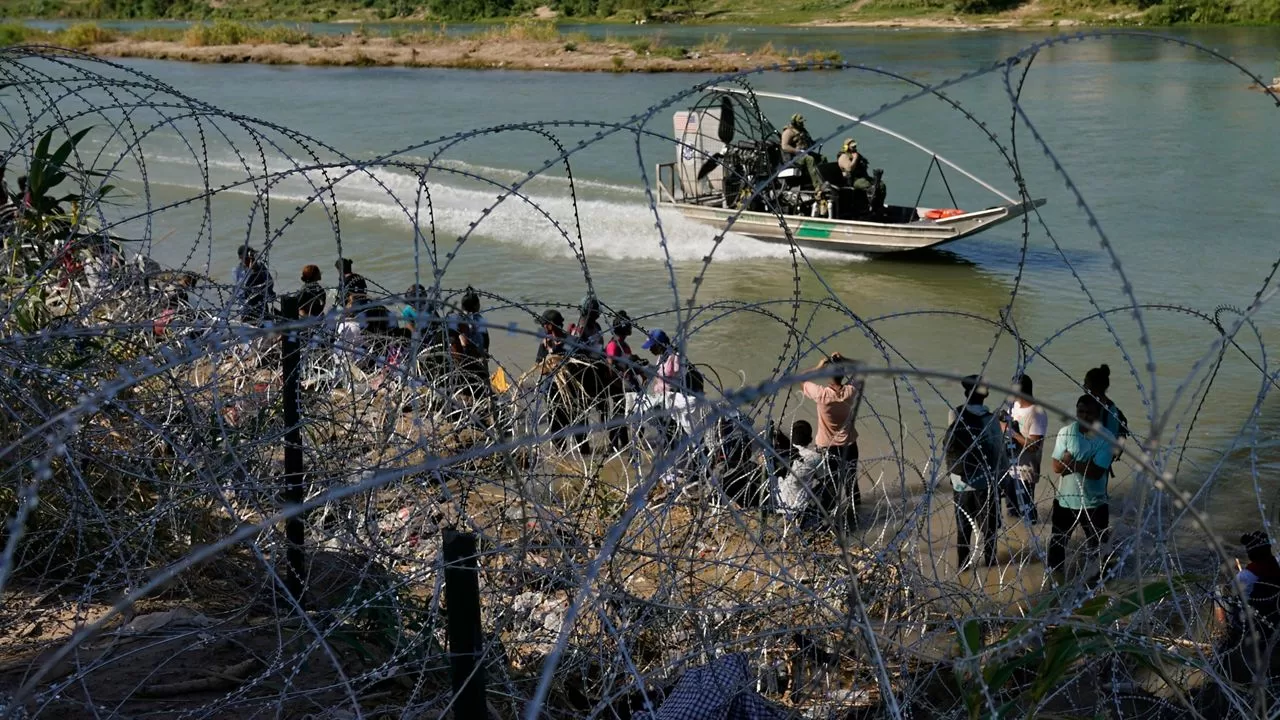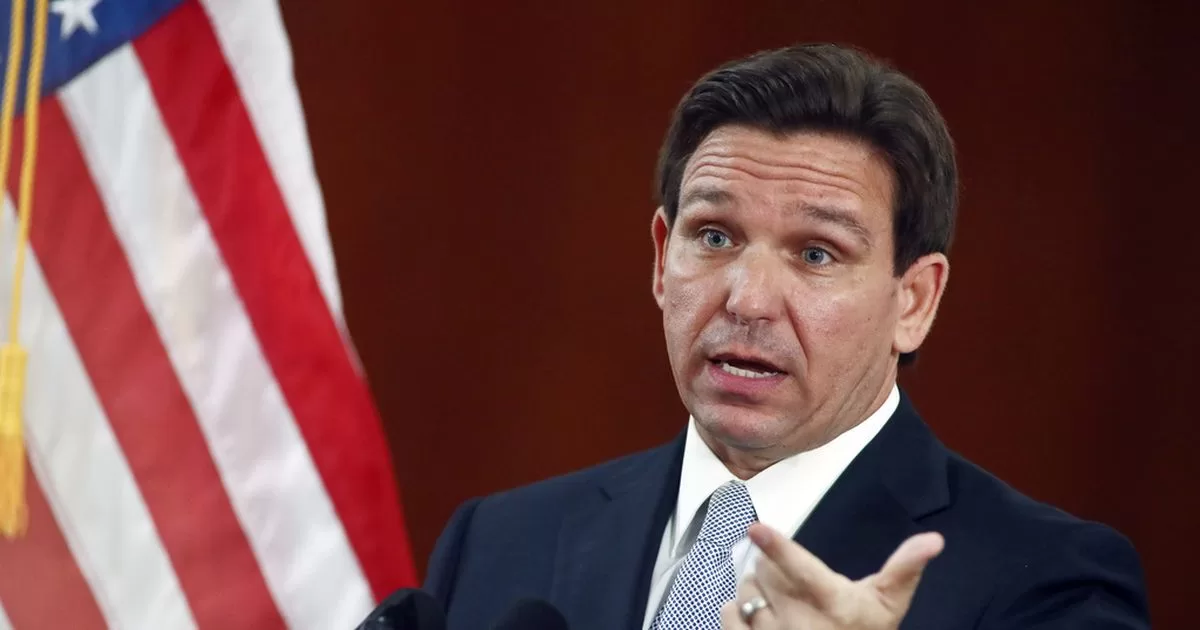Egyptian officials said Hamas was preparing to release 14 Israeli hostages on Saturday in exchange for 42 Palestinian prisoners in Israel, as part of a swap on the second day of a ceasefire that has allowed crucial humanitarian aid into the Strip. Gaza and has provided some relief to the civilian population after seven weeks of war.
On the first day of the temporary truce, Hamas released 24 of the around 240 hostages captured in the insurgent attack on October 7, and Israel did the same with 39 Palestinians detained in its prisons. Among those released in Gaza were 13 Israelis, 10 Thais and one Filipino.
On Saturday, Hamas provided Egypt and Qatar, which are acting as mediators in the process, a list of 14 hostages who will be freed, which was in turn communicated to Israel, explained with an Egyptian official who spoke on condition of anonymity because he was not authorized to reveal details about ongoing negotiations. Another official in the country, who also asked not to be identified, confirmed the details.
Under the ceasefire agreement, the insurgent group will release one Israeli hostage for every three prisoners released, and the Israeli prison service said earlier in the day it was preparing to release 42 inmates.
It was not immediately clear how many non-Israeli captives would be included in the group.
IT MAY INTEREST YOU:
During the four days that the ceasefire will last, Hamas is expected to release at least 50 Israeli hostages, while Israel will release 150 Palestinian prisoners, all women and minors.
Israel announced that the truce will be extended one more day for every 10 extra hostages who are released, something that US President Joe Biden said he hopes will happen.
Separately, a Qatari delegation arrived in Israel on Saturday to coordinate with the parties on the ground and “ensure that the agreement continues to move forward smoothly,” according to a diplomat familiar with the visit, who spoke on condition of anonymity because he was not allowed. Discuss details with the press.
The beginning of the ceasefire on Friday morning brought calm to the 2.3 million desperate Palestinians after incessant Israeli bombardments that killed thousands of people, drove three-quarters of the population from their homes and devastated residential areas. . Gazan insurgents also did not fire projectiles on Israel.
For Emad Abu Hajer, who lives in the Jabaliya refugee camp near Gaza City, Friday’s break meant he was able to return to digging through the rubble of his home, razed by an Israeli attack last week.
He found the bodies of a cousin and nephew on Friday, bringing the death toll from that attack to 19. In the absence of locating his sister and two other missing relatives, he resumed the task on Saturday.
“We want to find them and bury them with dignity,” he said.
The United Nations said the pause allowed it to increase the distribution of food, water and medicine to its highest level since humanitarian aid convoys were allowed to arrive in the besieged enclave on October 21.
The institution’s agencies were able to distribute 129,000 liters (34,078 gallons) of fuel — which is just over 10% of what was delivered daily before the war — in addition to cooking gas for the first time since the start of the war.
In Khan Yunis, a city in the south of the territory, a crowd with gasoline cans and other containers waited in a long line outside a service station on Saturday in the hope of getting some of the newly delivered fuel.
While waiting for fuel, Hossam Fayad lamented that the pause in fighting is only four days.
“I would like it to be expanded until the conditions of the population improve,” he said.
For the first time in more than a month, aid reached northern Gaza, where the Israeli ground offensive is focused. The Palestinian Red Crescent said 61 trucks loaded with food, water and medical supplies headed to the area on Saturday, the largest convoy since the start of the war.
The United Nations said it, along with the Palestinian Red Crescent, evacuated 40 patients and families from a hospital in Gaza City, where much of the fighting has been fought, to another in Khan Younis.
But the relief that the ceasefire represents is relative on both sides: on the Israeli side because not all the hostages will be released and on the Palestinian side because of its brevity. The truce leaves Gaza mired in a humanitarian crisis and under the threat of an early resumption of fighting.
Amal Abu Awada, a 40-year-old widow who fled a camp in the Gaza City area to Khan Younis with her three children in early November, left a UN center on Friday in search of food and water, but he said he couldn’t find anything.
“We returned empty-handed,” he said. “But at least there are no bombs and we can try again.”
The war began after several thousand Hamas fighters stormed southern Israel, killing about 1,200 people, mostly civilians, and capturing dozens of hostages, including babies, women, the elderly and soldiers.
It was hoped that the “momentum” of the agreement could lead to the “end of this violence,” said Majed al-Ansari, spokesman for the Qatari Foreign Ministry, which acted as mediator with the United States and Egypt.
The war in Gaza has caused a spike in violence in the occupied West Bank and raised fears that the conflict could spread across the region.
But hours before the truce began, Israeli Defense Minister Yoav Gallant was quoted telling troops that the pause would be short and that the war would continue for at least two more months.
Netanyahu has also pledged to continue the war to destroy Hamas’s military capabilities, end its 16 years of control in Gaza and return all hostages to his country.
The Israeli campaign has claimed the lives of more than 13,300 Palestinians, according to the Strip’s Hamas-controlled Health Ministry. The figure does not include updated data from hospitals in the north of the enclave, where communications are cut off. Some 6,000 people are missing and are feared buried under rubble, he added.
The Gaza ministry’s count does not distinguish between civilian deaths and combatants. Israel claims it has killed thousands of Hamas insurgents, but has provided no evidence.







